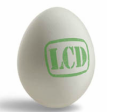Misrepresenting the Evidence on Low-Carb Diets
 Burrata with heirloom tomatoes, arugula, olives, olive oil
Burrata with heirloom tomatoes, arugula, olives, olive oil
First of all, the article discusses “high-protein, low-carbohydrate diets” and defines “high protein” as 30-50% of caloric intake. Aside from the Stillman diet and perhaps the diets of a few bodybuilders, I don’t know of any other popular low-carb plans that recommend more than 30% of calories from protein. On a 2000-calorie diet, 30% is 150 grams of protein, and 50% is 250 grams. Most low-carb diets are moderate in protein, although some people may consume higher amounts. This article purports to talk about the risks vs. benefits of high-protein, low-carbohydrate diets, but the “benefits” are glossed over, and several of the statements seem to denigrate carb restriction in particular.
According to Web MD, high-protein, low-carb diets can cause many health problems:
- Kidney failure This is untrue in the case of people with healthy kidneys. Although individuals with advanced kidney disease may need to restrict protein, there is no evidence that a high-protein, low-carb diet damages renal function (1).
- High cholesterol The article states “It is well known that high-protein diets (consisting of red meat, whole dairy products, and other high fat foods) are linked to high cholesterol. Studies have linked high cholesterol levels to an increased risk of developing heart disease, stroke, and cancer.” First off, low-carb diets don’t always result in elevated cholesterol levels. And in the vast majority of cases, lipid profiles become more favorable in terms of particle size and number, improved HDL to cholesterol ratio, and lower triglycerides, resulting in less risk of cardiovascular disease and stroke. The exception would be people with familial hypercholesterolemia, who may need to limit dietary fat and cholesterol and replace most foods high in saturated fat with items containing monounsaturated fat like olive oil. With respect to cancer, older and recent research has demonstrated that it is associated with lower rather than higher cholesterol levels (2,3).
- Osteoporosis Studies indicate this is not a concern with high protein consumption provided intake of plants — ie, nonstarchy vegetables — is adequate (4).
- Cancer It’s irritating to repeatedly read the assertion that low-carb diets don’t provide vitamins, minerals, fiber, and antioxidants. There are loads of micronutrients in animal products, and the vegetables, berries, nuts, and avocado consumed on carbohydrate-restricted diets supply plenty of fiber and antioxidants.
- Unhealthy metabolic state (ketosis) The information on ketosis in this article was contradictory but predominantly negative. On the one hand, the benefits of ketosis (switching to fat burning, weight loss, reduced appetite) are discussed early in the article, but later: “During ketosis, the body forms substances known as ketones, which can cause organs to fail and result in gout, kidney stones, or kidney failure.” Where is the evidence for this statement? Children with epilepsy following extremely low-carb ketogenic diets (about 10 grams of carb per day) were found to be at greater risk of developing kidney stones (5), but as far as I know, this hasn’t been seen in adults following VLC diets that include nonstarchy vegetables and berries. As far as gout, people who already have the condition will need to continue to monitor their uric acid levels, and they would benefit from eating alkalizing plant foods like vegetables in addition to protein and fat. However, there is no evidence that ketogenic diets cause gout, and because this condition is related to insulin resistance, outcomes may actually improve on a carb-restricted diet. Finally, there is no evidence that ketogenic diets cause kidney failure; in fact, preliminary research suggests they may actually reverse kidney damage (6).
In the summary, “Is Low Carb Right for Me?” the writer states that carb restriction is dangerous, particularly for those with heart disease, and that low-carb diets don’t allow a high intake of fruits and vegetables. I strongly disagree. I believe this way of eating is beneficial for people with heart disease for the reasons listed above, as well as improvements in hyperinsulinemia, hyperglycemia, and hypertension. And there are plenty of plant foods allowed on a low-carb diet. I eat vegetables at every meal, a few servings of nuts a day, berries once a day, and avocado just about every day on my VLC diet. I probably get more vegetables than most people do, along with more fiber and antioxidants.
Although I guess I shouldn’t be surprised, it concerns me that such a highly critical and inaccurate article was published on WebMD. Perhaps there are even worse articles written on medical sites considered reputable? In my opinion, using scare tactics to discourage people from adopting a carbohydrate-restricted diet is troubling, particularly since this way of eating has had such a positive impact on a significant number of people and has the potential to improve the lives of so many others.
* Although low-carbohydrate diets are safe and healthy for most people, it’s important to speak with your doctor prior to adopting a low-carb diet or making other dietary changes.
References:
1. Friedman AN, et al. Comparative effects of low-carbohydrate, high-protein vs. low-fat diets on the kidney. Clin J Am Soc Nephrol. 2012 Jul;7(7):1103-11
2. Kritchevsky SB, et al. Serum cholesterol and cancer risk: an epidemiologic perspective. Annu Rev Nutr. 1992; 12:391-416.
3. Strohmaier S, et al. Total serum cholesterol and caner incidence in the metabolic syndrome and cancer project (ME-CAN).J Epidemiol Community Health 2011; 65:A302 doi:10.1136/jech.2011
4. Barzel US, et al. Excessive dietary protein can adversely affect bone. J Nutr 128:1051-1053, 1988
5. Sampath A, et al. Kidney stones and the ketogenic diet: risk factors and prevention. J Child Neurol. 2007 April:22(4):375-378
6. Poplawski MM, et al. Reversal of nephropathy by a ketogenic diet. PLoS One 6:1–9, 2011

I appreciate your attack of the mainstream media, Web MD, I probably trust them myself too much.
I would like you to review the Hart Dietary Procedure and later give you my testimony. I am a cancer survivor.
Thanks so much for your comments, Randy. Congratulations on being a cancer survivor. Can you please provide me with a link to information regarding the Hart Dietary Procedure (the link to your website didn’t work). You can use the “Contact Me” page if you like.
http://Www.ColJoe.com
Its the address I left in my previous comment in the website block.
Thanks!
Sorry, Randy. I still get an error message when I try to access http://Www.ColJoe.com.
Thanks for setting the record straight point by incorrect point. So much for WedMD being a credible source.
Thanks, Gerri!
Your frustration and anger are palpible, Franziska. It is lamentable, no shameful, and STUPID that a ‘usually’ (?) reputable site, WebMD, would risk their credibility by publishing such irresponsible garbage. Their insistance that this WOE is ‘high protein,’ which you pick up on right away, is the prime example: As you say, I know of NO low-carb advocate that recommends a diet of more than 30% protein, and most of us eat I think between 20 and 25% protein. That being said I read a peer-reviewed study years ago (unfortunately, lost to me) that most Americans eat 15% (women) and 16% (men) protein (average). Of course, the proverbial 2,000kcal. diet on the Nutrition Facts Panel on packaged and processed food is based on 10% protein (50g = 200kcal). It was probably constructed by a vegan.
Thanks so much for your comments and continued support, Dan! I know there are many writers at WebMD, and most seem to research topics thoroughly before writing articles, but unfortunately that wasn’t the case here. Protein needs vary from individual to individual, but >30% is unnecessarily high and 10% is definitely too low, in my opinion.
When I see a low carb diet described as high protein I quit reading. If the author doesn’t know enough to describe it as high fat/ low carb any “facts’ presented are automatically called into question.
Great policy, Tim. Thanks for your comments.
Franziska, I can’t think of anything you wrote above that I would disagree with.
The WebMD article was reviewed by an internist in 2012. It’s hard for me to believe she did a thorough review of the recent pertinent scientific literature. Many of her points were mainstream in 2002, but we’ve learned much since then.
-Steve
Appreciate and agree with your comments, Steve!
Exactly! Low carb “high protein” is a hold over from the 1990’s when the low carb gurus were too afraid to emphasize that it was high fat. Other than a few outliers like the Weston A Price group, most people did not recognize that natural fats are healthful and full of vitamins we NEED. It was simply too politically incorrect to mention the fat.
Thanks so much for your comments, Janknitz. Fat phobia is rampant among many in the medical and nutrition fields. I continue to hope that this will change.